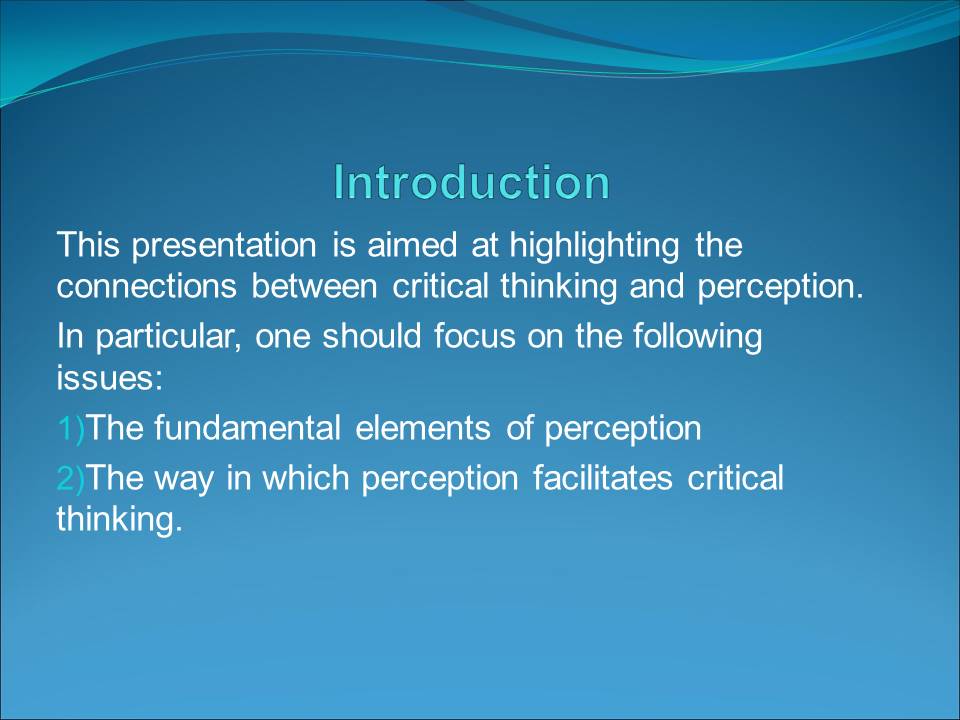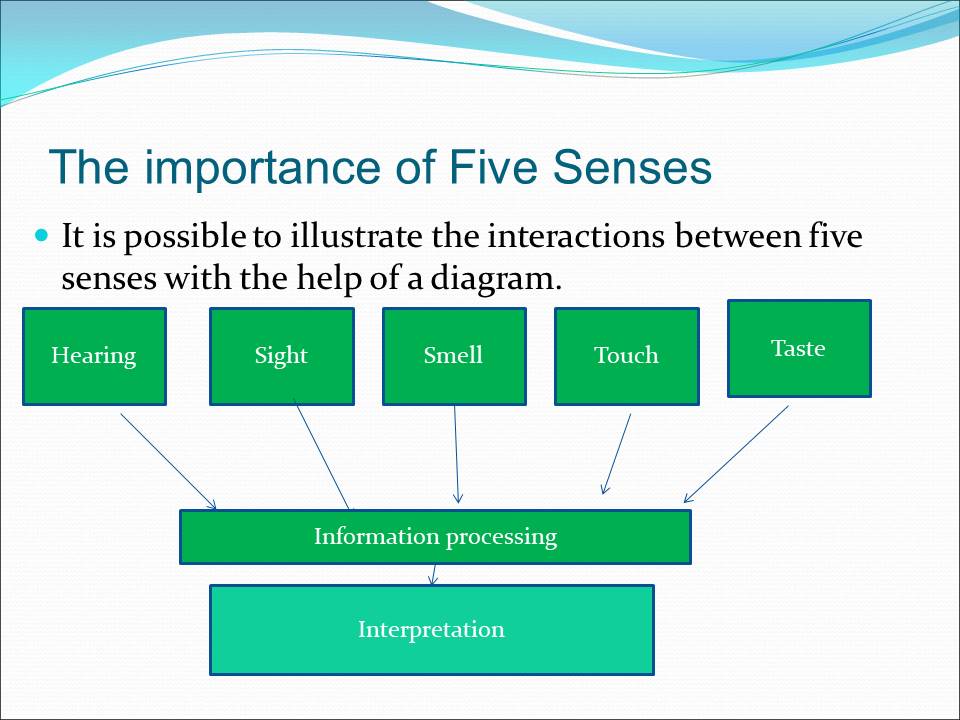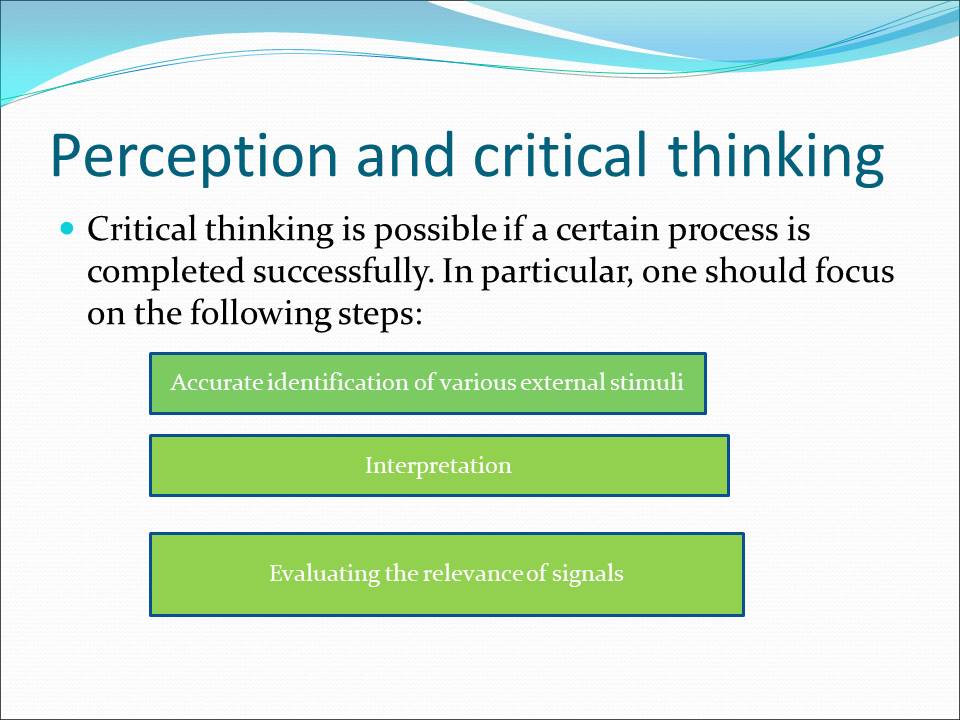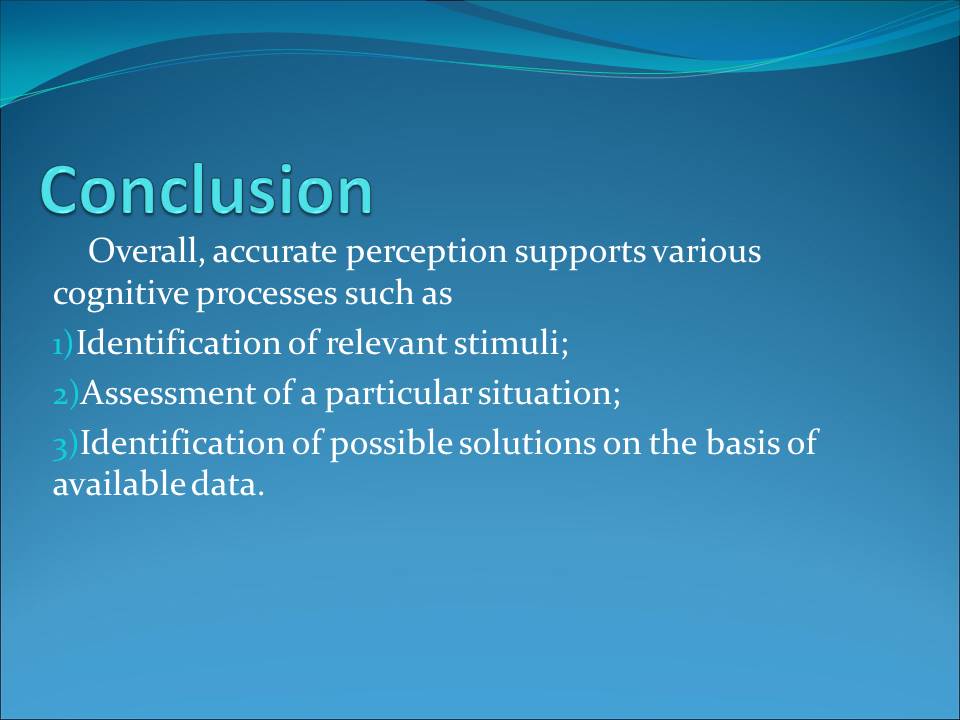Introduction
This presentation is aimed at highlighting the connections between critical thinking and perception.
In particular, one should focus on the following issues:
- The fundamental elements of perception
- The way in which perception facilitates critical thinking.
At first, it is important to discuss how different elements of perception complement one another. Additionally, one should also examine the way in which they support different cognitive processes, especially critical thinking that is an essential attribute of nurses (White, Duncan, & Baumle, 2010).

The importance of Five Senses
It is possible to illustrate the interactions between five senses with the help of a diagram.
- Hearing, Sight, Smell, Touch, Taste:
- Information processing:
- Interpretation.
- Information processing:
This chart demonstrates that each of the five senses contributes to the processing of information. Moreover, they are indispensable for the interpretation of various external signals. In turn, these activities make critical thinking possible.

Perception and critical thinking
Critical thinking is possible if a certain process is completed successfully. In particular, one should focus on the following steps:
- Accurate identification of various external stimuli.
- Interpretation.
- Evaluating the relevance of signals.
One should bear in mind that perception is essential for completing the first part of this process. Nevertheless, critical thinking is possible if different parts of the brain adequately assess the relevance of various external stimuli. Individuals should also form conclusions on the basis of information that they process.

Conclusion
Overall, accurate perception supports various cognitive processes such as:
- Identification of relevant stimuli;
- Assessment of a particular situation;
- Identification of possible solutions on the basis of available data.
Each of these activities is necessary for critical thinking of an individual. This attribute is essential for various medical workers, including nurses. However, the crucial task of medical workers is to assess the accuracy of available data (Rubenfeld & Scheffer, 2014). Provided that they do not cope with this task, they will not ensure the highest quality of care.

Reference List
Rubenfeld, M., & Scheffer, B. (2014). Critical thinking tactics for nurses. New York, NY: Jones & Bartlett Publishers.
White, L., Duncan, G., & Baumle, W. (2010). Foundations of nursing. New York, NY: Cengage Learning.